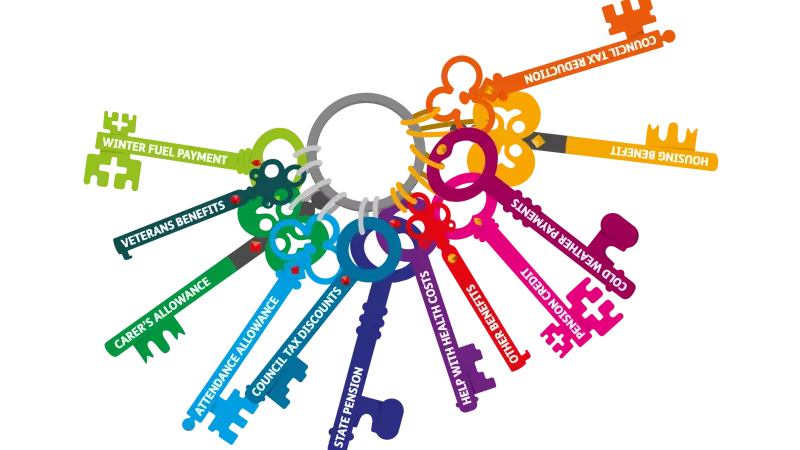New guide for veterans launched
Age Scotland’s “Veterans’ Guide to Later Life in Scotland” backed by Veterans’ Commissioner Charlie Wallace
Age Scotland has warned that many older veterans and their families might be unaware of the extra support they are entitled to. Scotland has around 130,000 older military veterans and Age Scotland believes that many go without the assistance available to them such as priority healthcare for conditions linked to their service, help with dental and eye care, housing and financial support.
To bridge this gap, the national charity for older people has launched a revamped version of its popular free ‘Veterans’ Guide to Later Life in Scotland’, now featuring even more support and resources aimed at older veterans. It has been backed by the Scottish Veterans Commissioner, Charlie Wallace.
First published in 2018, the Veterans’ Guide to Later Life has been developed by Age Scotland with the support of its partners in Unforgotten Forces, a consortium of Armed Forces and civilian charities working together to boost the health and wellbeing of veterans in Scotland age 65 and older.
It includes information on veterans’ rights when using to NHS services, military pensions, benefits, housing and community support, as well as new information about education, training and employment.
The guide features information about support and opportunities available to every older person in Scotland, plus content specifically for British Armed Forces veterans including regulars, reservists, National Servicemen and merchant navy who have sailed in support of a British military operation.
It is most relevant to veterans aged 65 plus, but much of the content will be of interest to veterans aged 50-64, regardless of how long ago, or for how long they served.
Veterans and their families can request a free paper guide by calling Age Scotland on 0800 12 44 222 or visiting www.age.scot/veteransguide. It is also available as a download.
Age Scotland’s Veterans’ Project Co-ordinator Doug Anthoney said:
“As the national charity for older people, we’re well aware of the issues surrounding growing older in Scotland and have revamped this guide with the evolving needs of older military veterans in mind.
“If you are aged 65 or older, live in Scotland and have served in the Armed Forces, the guide will be most relevant to you. It doesn’t matter how long ago, or for how long, you served: you may have had a military career, a short period of national service, been a reservist, or even supported a military operation with the merchant navy.
“Many people we’ve met through our Veterans’ Project left the armed forces with little or no support for readjusting to civilian life. Today, the military is more proactive in supporting that transition, but older veterans it seems were, by and large, left to it.
“Our guide aims to ensure veterans have a better experience when making the transition to later life. If you’re unsure where to turn, it will point you towards the information and organisations that exist to help you and your family with issues such as tackling loneliness and isolation, healthcare, housing, social care, money, planning for the future and getting out and about.”
The Scottish Veterans Commissioner, Charlie Wallace said:
“Huge numbers of older military veterans in Scotland may be unaware of the extra help available to them in civilian life. This updated guide from Age Scotland’s Veterans’ Project brings this all together and is a valuable source of information, advice and support.
“Whether someone served for one day or 30 years, we are indebted to them and must ensure that every single veteran has access to the assistance they are entitled to.”


